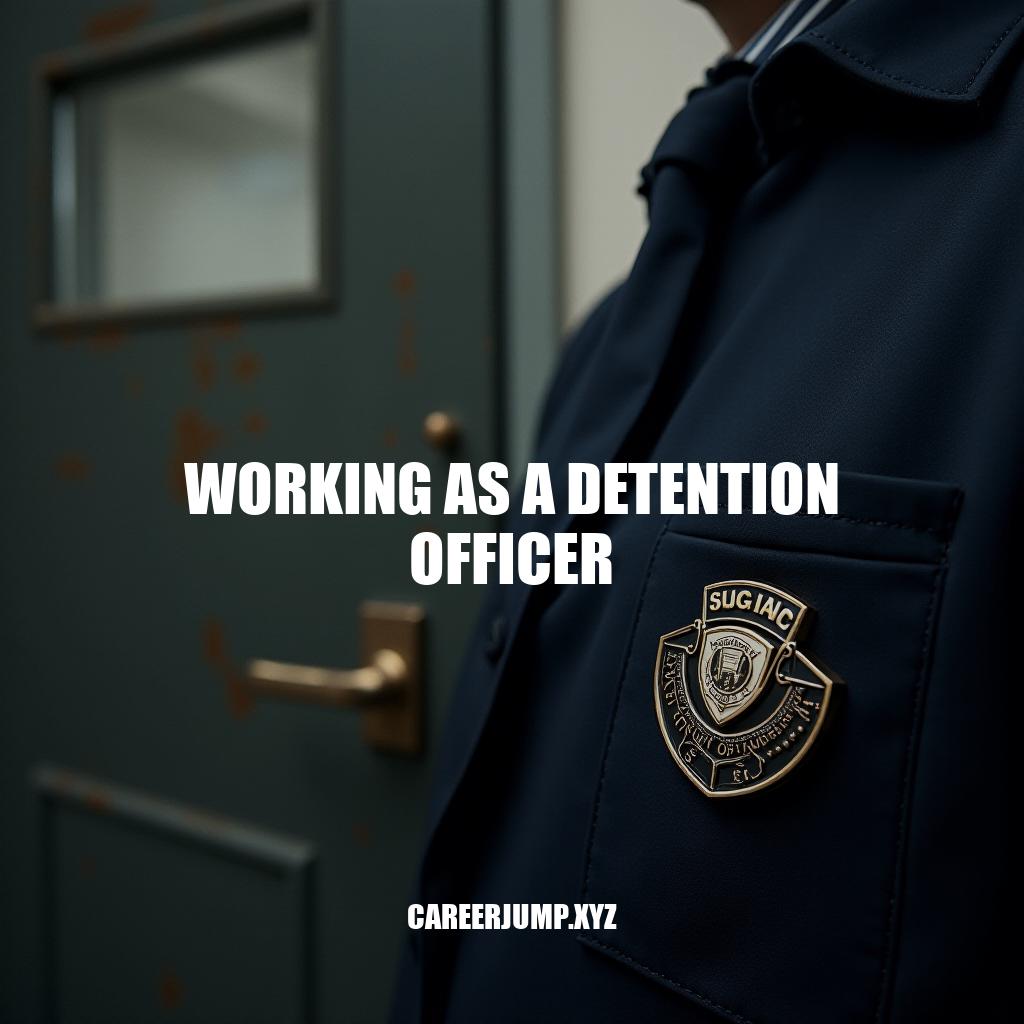
A detention officer’s work is critical within the correctional system. They ensure the safety and security of inmates, staff, and visitors in various detention facilities such as jails and prisons. These officers manage day-to-day operations, including supervising inmates, conducting searches to prevent contraband, and enforcing facility rules and regulations.
Detention officers also play a vital role in monitoring inmate behavior, addressing conflicts, and maintaining order within the facility. Their presence helps maintain a controlled environment, reducing the risk of violence and ensuring compliance with legal and procedural standards. In essence, detention officers are the backbone of the correctional system, contributing significantly to the safety and rehabilitation processes within these institutions.
Daily Duties
Day-to-day tasks for a detention officer:
-
Monitor inmates by supervising their activities, ensuring compliance with facility rules, conducting headcounts, and documenting their behavior.
-
Conduct inspections by searching cells and common areas for contraband, verifying the cleanliness and security of living spaces, and checking locks and security devices.
-
Maintain order by intervening in conflicts, using conflict resolution skills, implementing disciplinary measures when necessary, and working to de-escalate tense situations.
-
Interact with inmates to understand their needs, address their concerns, provide guidance, and support rehabilitation and reintegration efforts.
There’s a lot to it and no two days are the same, I imagine!
Required Skills and Qualifications
Detention officers need strong communication skills to manage inmates effectively, enforce rules, and maintain security. Physical fitness is key for handling confrontations and performing security checks. Crisis management abilities are crucial for resolving conflicts, diffusing tense situations, and ensuring safety.
You’ll also need a high school diploma, criminal justice training, and possibly a certification in first aid. Adaptability, emotional resilience, and decision-making skills are vital, plus a clean criminal record and valid driver’s license. Each facility may have specific requirements.
Challenges Faced
Managing conflict stands out as a significant challenge for detention officers. Detainees come from diverse backgrounds, and with that diversity comes varying temperaments and triggers. Officers must often mediate disputes and de-escalate volatile situations, requiring a keen understanding of human behavior and strong communication skills.
Even with training, not every confrontation resolves smoothly.
Ensuring safety within detention facilities involves balancing the welfare of detainees and officers. Officers must stay vigilant for contraband, prevent altercations, and respond swiftly to emergencies. Maintaining this delicate balance while navigating complex institutional protocols is no small feat.
Handling stressful situations is part and parcel of the job.
The environment can be unpredictable and intense, requiring officers to remain composed under pressure. Long hours and high-stress conditions can lead to burnout, impacting mental and physical health. Building resilience and seeking support are crucial for managing the demands of this role effectively.
Benefits and Opportunities
Job stability is a significant benefit for detention officers, as the demand for correctional staff remains steady due to the constant need for maintaining order and security in detention facilities. Additionally, detention officers often receive comprehensive benefits packages, including health insurance, retirement plans, and paid time off.
Career advancement opportunities for detention officers are plentiful. They can move up to roles such as senior correctional officer, correctional sergeant, or even warden, depending on their experience and performance.
Some may also transition to specialized positions within the criminal justice system, such as probation officers or roles within federal agencies like the U.S. Marshals Service.
A Vital Role: Detention Officers in Correctional Facilities
A detention officer plays a vital role in maintaining safety and security within correctional facilities. Their day-to-day tasks involve monitoring inmates, conducting searches for contraband, enforcing facility rules, and interacting with inmates to support rehabilitation efforts.
Detention officers need strong communication skills, physical fitness, crisis management abilities, and adaptability to excel in this role.
Managing Conflict and Ensuring Safety
Managing conflict is a significant challenge, requiring a keen understanding of human behavior and effective communication skills. Ensuring safety involves balancing the welfare of detainees and officers while navigating complex institutional protocols.
The job can be stressful, but it also offers stability, comprehensive benefits packages, and career advancement opportunities.
Career Advancement Opportunities
Detention officers can move up to senior roles or transition into specialized positions within the criminal justice system. With a high school diploma, criminal justice training, and certification in first aid, individuals can pursue a rewarding career as a detention officer.


